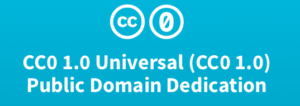What did I learn about creating a blog? Well I learned that one of the worlds most used platforms for websites, WordPress , is not nearly as easy to use as say an Iphone. It is not user friendly at all.
I thought the classmates blogs were interesting. I found most others to be better at writing than me. I found some were really good at getting to the answers of the questions and were really able to tie the reading together with their profession (refrigeration mechanic). I loved the layout of some and not of others (Tumblr doesn’t look that professional). I learned some people posted each blog post in the first forums comments, not many people had Creative Commons logos and some people were very secretive and you couldn’t see theirs, access denied. But again what really stood out the most was how well everybody could write. Also their personalities seemed shiny and excited to read the required reading (whether it’s genuine or not I do not know) but they presented as delighted in the assignment.
The strength of my blog is that I don’t sound like Kamala Harris. I am not trying to be profound, but more have a casual little jig, where I put thoughts to paper.
I think the layout is decent, and I spoke truth in my articles, not what the teacher wants to hear. I tried to create it for me, as I am the one who keeps it now that the course is done.
What were its weaknesses? Well the writing is probably stalled at a grade 10 level. My heart was only half in it which is probably apparent in the writing style on the topics that were required book reading / replying. Also the content is unexciting and I wouldn’t want to read it unless I was required to.
For a mark for my blog- I think it would be about a 4.2/5
I believe I did all the required things, Creative Commons, extra media tidbits like videos and an actual link to my blog that you could click on. Always more than 100 words.
I did not continue it on from my other blog like requested, but that was a conscious choice out of personal preference to separate them incase I need to look back at certain courses to find the content easier. I figured it would be fine since it’s my blog. Yes I have good “breadth” on the topics. I spent many car rides thinking about the topics through and through. I covered all the topics. My content isn’t spaced evenly over 8 weeks but that is because my contract at the university finished part way through so I had more time to hustle and get this done. My writing is not very sophisticated so that knocks me down a few ticks.
I just feel my blog is better than some, not super awesome. I put good effort into making it custom and fun and I think my mark reflects that. I did do some good learning as I finally have clarity on if I can hug students and how I want to approach phones in the classroom that I did not have before. So two burning questions, I have resolves to.


